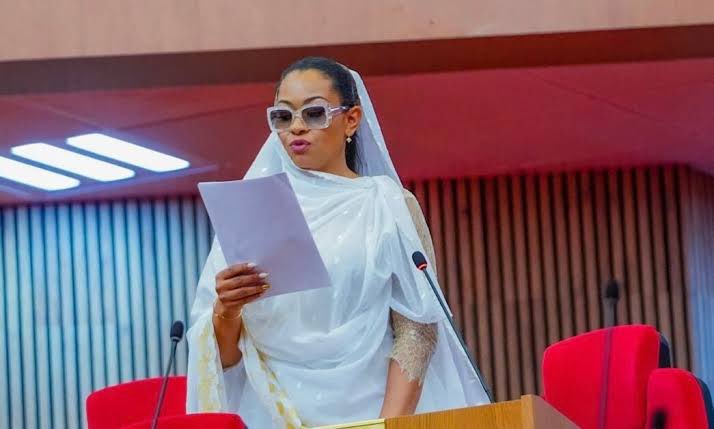The Nigerian Senate’s suspension of Senator Natasha Akpoti-Uduaghan, representing Kogi Central, has sparked a contentious debate revolving around the interplay of legislative authority, judicial review, and the fundamental right to representation. Initially suspended on March 6, 2025, for allegedly violating Senate rules by refusing to vacate her assigned seat during plenary, Akpoti-Uduaghan’s six-month suspension period has elapsed, raising questions about the Senate’s continued refusal to reinstate her. This refusal, rooted in the pending appeal against the initial court ruling upholding the suspension, has drawn the ire of the Nigerian Bar Association (NBA), which argues that the Senate’s stance undermines democratic principles and disenfranchises the constituents of Kogi Central.
The heart of the matter lies in the Senate’s interpretation of the “sub judice” principle, which essentially dictates that matters under judicial consideration should not be subject to public discussion or alteration through other means. The Senate, citing this principle, maintains that reinstating Akpoti-Uduaghan before the Court of Appeal delivers its judgment would be prejudicial to the ongoing legal proceedings. However, the NBA contends that the completion of the six-month suspension period renders the initial punishment moot, irrespective of the pending appeal. The NBA argues that conflating the suspension period with the legal challenge creates a dangerous precedent, potentially allowing legislative bodies to circumvent due process and indefinitely suspend members under the guise of ongoing litigation.
The NBA’s stance emphasizes the separation of powers and the importance of upholding the distinct roles of the legislature and the judiciary. While acknowledging the Senate’s prerogative to discipline its members, the NBA underscores that this power must be exercised within the confines of the law and without infringing upon the fundamental rights of elected representatives and their constituents. The suspension, originally intended as a temporary disciplinary measure, has transformed into an extended absence from legislative duties, effectively disenfranchising Kogi Central’s electorate. This prolonged absence, particularly given the completion of the stipulated suspension period, raises concerns about the Senate’s commitment to representative democracy.
The Senate’s decision to link Akpoti-Uduaghan’s reinstatement to the outcome of the appeal raises further concerns about potential abuse of power and the erosion of legislative accountability. By deferring to the judiciary on a matter pertaining to its internal disciplinary procedures, the Senate arguably weakens its own authority and creates a scenario where judicial decisions can inadvertently influence legislative representation. This intertwining of judicial and legislative functions potentially blurs the lines of responsibility and could be exploited to manipulate legislative outcomes.
The NBA’s call for the Senate to “act honourably” underscores the ethical dimensions of the issue. The association emphasizes that the primary responsibility of legislators is to serve their constituents and that the Senate’s continued refusal to reinstate Akpoti-Uduaghan disregards this fundamental duty. By prioritizing internal procedural arguments over the right to representation, the Senate risks damaging public trust and undermining the legitimacy of its own disciplinary processes. The NBA’s appeal to honour highlights the expectation that legislative bodies should prioritize the interests of the people they represent and act in a manner consistent with democratic principles.
The Akpoti-Uduaghan case serves as a microcosm of the broader challenges facing democratic governance in Nigeria. The interplay between legislative authority, judicial review, and the rights of elected officials highlights the delicate balance required to maintain a functioning democracy. The NBA’s intervention underscores the crucial role of civil society organizations in holding governmental bodies accountable and advocating for the protection of fundamental rights. The outcome of this case will undoubtedly have far-reaching implications for the future of legislative independence, judicial oversight, and the right to representation in Nigeria. It remains to be seen whether the Senate will heed the NBA’s call and prioritize the principles of representative democracy over procedural technicalities, thereby upholding the integrity of the legislative process and restoring the voice of Kogi Central in the nation’s legislative chambers.














